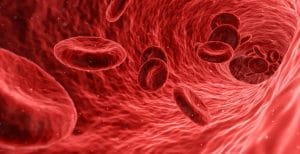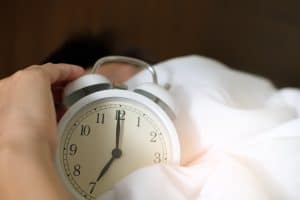Sleep: Is it just a waste of time?

We spend about a third of our life sleeping. That means if you live to be 90 years old, you’ll have spent about 30 years of your life asleep! These days, a lot of people see sleep as a waste of time and they may cut out time in bed in order to have more hours in the day to get things done or to do things they enjoy. So people often want to know whether sleep is really important, or whether it is just a waste of time. There are two ways to think about the question: “Is Sleep Just a Waste of Time?”.
Impact of Lack of Sleep
First, we can think about the way that people feel during the day when they have not had enough quality and quantity of sleep the night before. Some of the most common effects of sleep loss are:
- Fatigue or tiredness
- Irritability, feeling grumpy, easily bothered
- Difficulty concentrating or remembering things
- Low energy and motivation
How do you feel when you haven’t slept well? 
When you don’t get a good night of sleep, it affects the quality of your time awake. This suggests that sleep must be doing something important for your body and mind. So what does sleep do?
Four Functions of Sleep
The second way to address this question is to examine the science behind the functions of sleep. For thousands of years people have proposed theories about what sleep is for. Over the past 40-50 years, scientific research has revealed a number of different aspects of our health that sleep is involved in.
1.We now understand that sleep plays an important role in learning and memory.
When you are awake, you are always learning new information. Learning leads to the formation of new connections among the 100 billion neurons in our brain, and it is these patterns of connections that are the basis for how memories are stored. When learning is fresh, these connections are weak and many of them end up fading over time. That’s actually a good thing because there are many things we learn that are not worth remembering long-term, such as what you had for breakfast this morning.
 During sleep, your brain somehow filters through your new memories and tries to figure out which ones are worth keeping and which ones can be discarded. For memories that are more important, those connections are strengthened during sleep.
During sleep, your brain somehow filters through your new memories and tries to figure out which ones are worth keeping and which ones can be discarded. For memories that are more important, those connections are strengthened during sleep.
For less important memories, the connections are weakened. When people do not get a good night of sleep, they often find it is more difficult to remember information they learned the day before. How does our brain figure out what memories are more or less important? Scientists are trying to figure that out. So getting a good night of sleep is an important part of our ability to learn and remember new information.
2. There is also a connection between sleep and our emotions.
As mentioned earlier, oftentimes when people don’t sleep well they feel irritable or grumpy the next day. For people who tend to worry or be anxious during the day, that worry is often worse after a poor night of sleep. Or when people suffer from depression, their mood is often worse when they don’t get enough sleep. However, the opposite is also true.
About REM sleep
Research has shown that getting a good night of sleep can help to ease worry or low mood. What we’re learning is that our rapid eye movement, or REM, sleep that seems to be most important for our emotional health. Part of getting a good night of sleep means spending roughly 20% of the night in REM sleep, although that amount can vary from night to night.
During REM sleep our brain sifts through the thoughts and experiences of the previous day and reduces  the intensity of the emotions. For example, if you go to a restaurant and have a really unpleasant experience, your mind will store that information in memory so you remember not to go back, but if you think about the experience you won’t have the same strong emotional reaction that you did at first.
the intensity of the emotions. For example, if you go to a restaurant and have a really unpleasant experience, your mind will store that information in memory so you remember not to go back, but if you think about the experience you won’t have the same strong emotional reaction that you did at first.
Since REM sleep is the type of sleep in which most of our dreaming occurs, you may be wondering about how the content of our dreams is related to our emotions. There are a lot of theories out there about the meaning of our dreams and you can get different interpretations of your dreams. We don’t know which, if any, of the theories is correct so it’s not possible to find out with any confidence what your dreams may mean. However, we do know that your dreams can reflect the thoughts and emotions from the day before. So if you are experiencing stress or worry during the day, you are more likely to have stressful, anxious dreams at night.
Do you remember your dreams?
 You may be someone who does not remember their dreams and wonder if that means you are not having REM sleep. It is unlikely that you are not getting into REM sleep. It’s just that the part of your brain that stores new memories (called the hippocampus) is usually not active during sleep. So you can have dreams but they do not get stored into memory. So even if you never remember your dreams, you’re probably still having them.
You may be someone who does not remember their dreams and wonder if that means you are not having REM sleep. It is unlikely that you are not getting into REM sleep. It’s just that the part of your brain that stores new memories (called the hippocampus) is usually not active during sleep. So you can have dreams but they do not get stored into memory. So even if you never remember your dreams, you’re probably still having them.
3. One of the most recently discovered functions of sleep has to do with the removal of waste from the brain.
That may sound like an odd statement, so let me explain what that means. All of the organs of our body (heart, liver, brain, etc…) produce waste as they are active and functioning. This is a normal part of the activity of each of the cells in your body. There are efficient systems in the body for collecting this waste and disposing it in order to keep all of our organs working well.
Our lymph nodes, called the lymphatic system, play an important role in ‘taking out the trash’ throughout most of the body. However, the brain does not seem to have lymph nodes. This has puzzled researchers for years, since the brain is very active and produces a lot of waste. It was not known how the waste was getting removed from the brain.
Exciting scientific discoveries
Just a few years ago a series of exciting scientific discoveries revealed that sleep seems to play a critical  role in this process. When we are awake and our neurons are most active, they produce waste that is dumped out of the cell into the space between neurons. Then, during sleep, the space between neurons expands. This allows the waste products to flow in between the cells to reach a blood vessel or an area of the brain called the ventricles. The waste is absorbed into the blood or ventricles where it can be taken out of the brain and discarded.
role in this process. When we are awake and our neurons are most active, they produce waste that is dumped out of the cell into the space between neurons. Then, during sleep, the space between neurons expands. This allows the waste products to flow in between the cells to reach a blood vessel or an area of the brain called the ventricles. The waste is absorbed into the blood or ventricles where it can be taken out of the brain and discarded.
While the details are still being worked out, it seems that not getting a good night of sleep can lead to a build-up of waste in the brain that may keep it from functioning at full capacity. This may be why we often feel ‘fuzzy’ after a poor night of sleep and may have trouble thinking clearly. There are a number of research studies currently going on that are trying to understand this process more clearly.
4. Sleep plays an important role in the regulation of our immune system.
During sleep, in particular the deepest sleep called slow wave sleep, our immune system is boosted. Our slow wave sleep overall seems to be the time when our body repairs itself from the wear and tear of the day. This includes our immune system becoming more active to help in this process of repair.
Research about immune systems and sleep
Research has shown that people who do not get enough sleep on a regular basis are more likely to have weaker immune systems and can be more prone to getting sick. This also seems to be the reason for when people feel sleepy and often sleep more when they are sick. This may be a way our body tries to sleep more to boost our immune system and help us recover more quickly. Getting a good night of sleep is one step we can take to reduce our chances of getting sick.
weaker immune systems and can be more prone to getting sick. This also seems to be the reason for when people feel sleepy and often sleep more when they are sick. This may be a way our body tries to sleep more to boost our immune system and help us recover more quickly. Getting a good night of sleep is one step we can take to reduce our chances of getting sick.
There are other functions that sleep serves beyond these four areas, but hopefully this demonstrates that sleep is very important for our physical and mental health.
How Much Sleep Do I Need?
You have probably heard before that adults should get about 8 hours of sleep per night, and indeed that seems to be how much sleep we need on average. However, sleep need varies from person to person.
Short sleepers and long sleepers
There are some people who need less than six hours of sleep per night to be fully rested; this is called being a short sleeper. Other people are long sleepers, meaning they need nine or more hours per night to feel fully rested.
 The problem is that there currently is no blood test or brain scan that can tell us how much sleep someone needs. The only way to know how much sleep you need is to try and get more and more until you start waking up rested and feel energetic and not tired during the day.
The problem is that there currently is no blood test or brain scan that can tell us how much sleep someone needs. The only way to know how much sleep you need is to try and get more and more until you start waking up rested and feel energetic and not tired during the day.
Hopefully that’s already how you feel!
This is not a perfect way to figure out your sleep need because there are many reasons you may not feel rested during the day that have nothing to do with how you are sleeping. So you may get a full night of sleep and still feel tired during the day because of certain medical problems or from side effects of medications. There is also some evidence that the amount of sleep we need decreases as we age, so it may be that you need less sleep to feel rested than you did when you were younger. However, this is controversial and the scientific evidence is not conclusive.
Focus is on how you are feeling during the day.
What’s important is not to be too focused on the number of hours you are getting at night, but rather to focus more on how you are feeling during the day. Do you get seven hours of sleep per night and feel good during the day? Great! That may be all you need. Do you need eight hours to feel fully rested? If so, then hopefully you’re able to get that amount on a regular basis. It’s important to acknowledge that you may be trying to get a good night of sleep but are unable to because of insomnia or other sleep disorders. If that is the case for you, it is important to discuss your sleep with your healthcare providers.

Important to Make Sleep a Priority
I hope that you found this information to be interesting and helpful as you seek to understand more about your sleep. It’s important to make sleep a priority because it is a pillar of good health and, also of how we feel each day. Please leave a comment below this post about your experiences and thoughts about sleep.
Contributed by:

Leave a Comment
